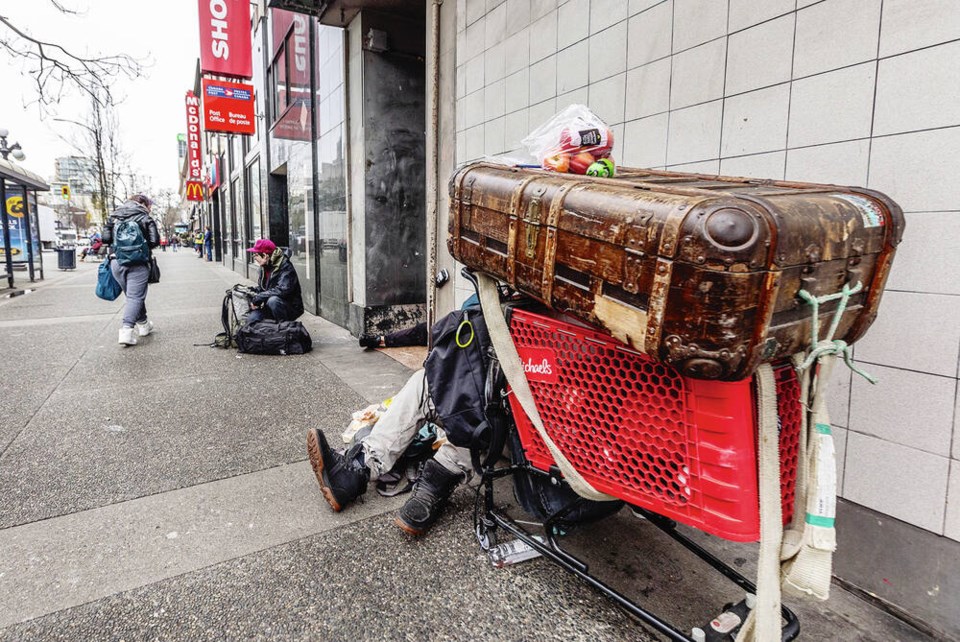Advocates for the unhoused gathered at Victoria City Hall Thursday evening to demand an easing of public sheltering rules and an easier retrieval process for belongings impounded by bylaw officers.
Niki Ottosen, an advocate for the unhoused community who runs the BackPack Project — providing necessities and comfort items to the unhoused — said she wants the city to provide more information to explain how people can pick up their belongings after they’re seized by bylaw officers.
“It’s very difficult for people to retrieve impounded belongings and so that leaves them without survival gear for 24 to 48 hours,” said Ottosen, one of six people who planned to address councillors at an evening meeting.
Information about how to retrieve property is provided by bylaw staff to people at the time their belongings are taken into custody, city spokesperson Colleen Mycroft said in a statement.
Information is also shared through social-agency partners and by phone, email and in person when people contact bylaw services.
The city’s website says people trying to retrieve belongings should call or email bylaw services, providing their name, a description of the items, and where and when they were impounded, and bylaw services will schedule a time for retrieval.
But Ottosen, who recently spent three hours in two trips to pick up impounded belongings for a woman sheltering in a park, said the phone number provided — 250-361-0215 — often isn’t answered.
The first time Ottosen went to city hall, she said, she was told the materials couldn’t be returned on the same day. Bylaw services gave her a tent to replace a woman’s tent that had been thrown out, Ottosen said.
She returned the next day after 1 p.m., as she was instructed to do, and waited half an hour while the items were retrieved. It was a frustrating process that would have been more challenging for someone without access to a vehicle to transport the items, she said.
Mycroft didn’t answer questions Thursday about the criteria bylaw officers use to decide what items to store and what to throw out, and where impounded items are stored.
She previously said “the highest level of discretion” is used by bylaw officers in deciding whether to impound belongings during a cold snap, and officers will not leave someone without shelter during extreme weather.
Jordan Cooper, director of services at Our Place Society, said Our Place staff sometimes help people retrieve their belongings, because the process can be challenging for people who are unhoused.
“When you’re living on the street, a lot of the processes are difficult because your daily life is often in chaos,” he said.
People often feel more comfortable having someone advocate for them, he said.
Ottosen is also concerned that as the number of parks where overnight sheltering is allowed decreases, people will be pushed onto the already crowded 900-block of Pandora Avenue, Queens Avenue and the area around Rock Bay Landing.
The bylaw that requires people to pack up each morning at 7 a.m. is disruptive and “quite onerous for people that are already really struggling to just simply survive,” said Heather Murphy, a member of Neighbourhood Solidarity with Unhoused Neighbours, a group that advocates for unhoused people in the region.
Murphy would like the city to end its ban on daytime sheltering so people can have some stability. “It’s not a sustainable approach to the people who are homeless. It’s not helping. It’s causing more problems than anything else,” she said.
>>> To comment on this article, write a letter to the editor: [email protected]




